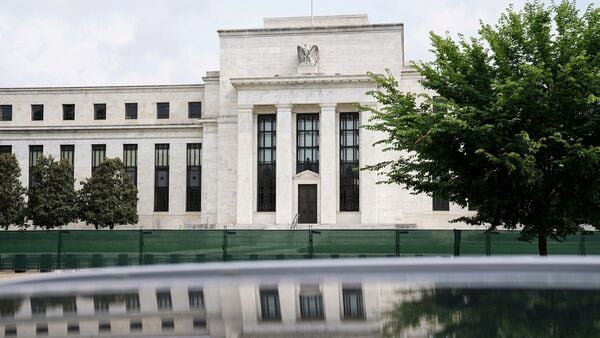The Federal Reserve’s monetary policy has long been a cornerstone of the U.S. economy, influencing interest rates, inflation, and employment levels. However, a growing dependency on the Fed’s interventions poses significant risks that warrant immediate attention. Over the years, the central bank has resorted to unconventional measures—such as quantitative easing and near-zero interest rates—to stimulate the economy during periods of stagnation. While these actions have provided temporary relief, they have also fostered a reliance that could undermine long-term economic stability

Source:- bbc news
One of the most pressing concerns is that prolonged low interest rates have encouraged excessive risk-taking among investors and financial institutions. With borrowing costs at historic lows, companies are more inclined to accumulate debt, leading to inflated asset prices and potential bubbles in markets like real estate and equities. This dependency creates a fragile financial environment that could collapse if the Fed is forced to tighten monetary policy abruptly.
Source:- news 18
Moreover, the Fed’s actions have implications for inflation management. As the economy recovers, the central bank may face pressure to raise rates to combat inflation. However, the dependency on low rates could hinder its ability to respond effectively, creating a situation where inflation spirals out of control.
To address this dependency problem, the Fed must recalibrate its approach to monetary policy. This includes communicating a clear framework for unwinding extraordinary measures while fostering economic resilience without overstimulating the economy. A focus on structural reforms, such as improving productivity and labor market participation, is crucial for creating sustainable economic growth.
In conclusion, while the Fed’s role in managing the economy is vital, the growing dependency on its interventions presents significant challenges. By addressing this issue now, the central bank can help ensure a more stable and robust economic future, free from the risks associated with excessive reliance on monetary policy.
Share your views in the comments

